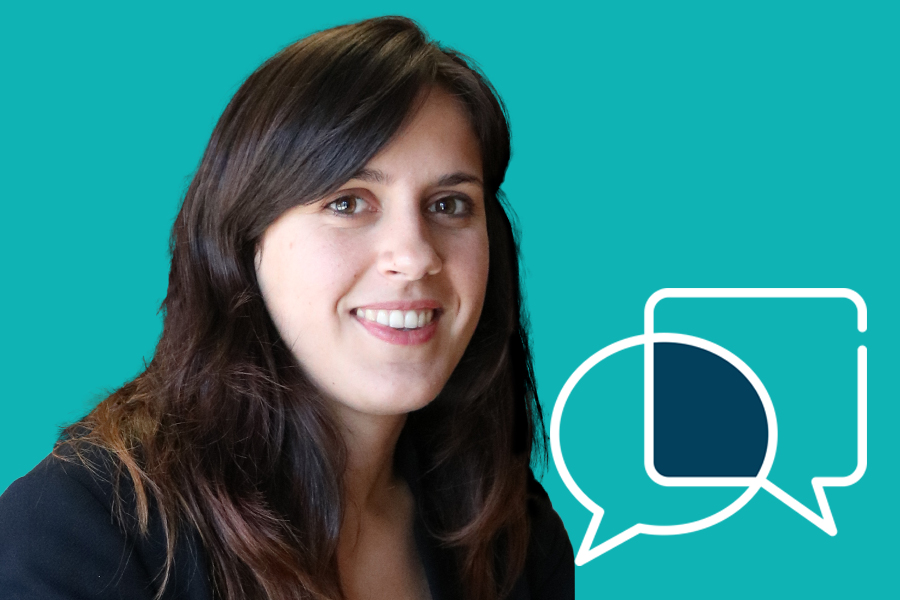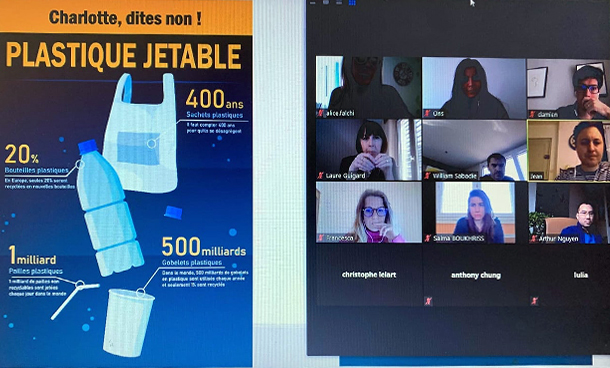Research in management in the current health crisis: how is iaelyon adapting to it and supporting organisations ?

During the lockdown, the Magellan research laboratory – iaelyon School of Management is continuing to carry out its research and adapting its practices to keep the dynamism of its teams, whilst still maintaining links with organisations.
The teams are continuing to interact
The research world has always made good use of visioconference tools to pursue collaborative work with researchers around the world. What is less common, is using to meet with researchers in the same laboratory, and even less so for colleagues in neighbouring offices: and yet, this is what has been put in place to maintain research meetings by distance. Also, the Marketing and Human Resources research groups have organized their first meetings completely online since March, and the seminars of the Finance, Strategy and International Management groups have been organized since April.An exciting opportunity for Jean Pfiffelman, a research assistant in marketing, to do a presentation to a dozen researchers and build on their feedback (see photo below). It allowed him to continue working on his research work and to keep the momentum building online in preparation of his doctoral defense in July.

I started the monthly meeting by going around the « screen » so that each person could talk about the latest developments in their projects. It was reassuring to see each other, and not just hear each other. The reunion brought together 25 colleagues, some of whom were doctoral students from Casablanca and Shanghai. It allowed us to put all of our researchers on the same level, because everybody was on video. The discussion therefore was more personal, more unimpeded in a way.
Organizing yourself by distance requires strict self-control : research papers and presentations need to be sent before meetings so that everyone has the time to read and take in the documents, and prepare feedback. This also means timing the presentation. It’s certainly a shorter timeframe, as the meeting was held for 1.5 hours instead of the normal two hour meetings, which “requires a lot of staring at a screen” as pointed by Didier Vinot. *
The workshop of the Economic and Management Sciences Graduate School is to be held on the 14th April using web-conference tools. The second- and third-year doctoral students, as well as researchers from the Magellan laboratory, will be participating in this annual meeting in order to continue encouraging the students to transform their doctoral work in academic publications.
A major crisis means organizations to support
"As a researcher, I have been contacted by a journal in regards to the creation of an article on crisis management in the health sector. I have also been approached by a solidarity network bringing together around thirty directors of SMBs and participating in their weekly meetings. Having moved on from the initial shock period, these leaders are asking for supporting in terms of reviewing HR issues. How do you manage teams by distance ? How do you maintain a link with your colleagues ? These are some of the key questions being asked during the lockdown period. The other element that I have noticed as that leaders whose commercial activities have suffered are taking advantage of this period to review their business strategies. Some have already adopted post-lockdown visions and have developed 6-month and one-year projections instead of their usual month-by-month practices. In this sense, the change is quite positive.This crisis has opened the way for new research interests to form and for researchers to revaluate their practices. We are already seeing studies emerge on the consequences of the lockdown on individual and organizational behaviours.
I have also seen an increase in the workload of accountants and HR managers. The former in terms of the financial period and advise to directors about the arrangements made during the health crisis, and the latter for swift and innovative responses in order to adapt work contracts and the management of off-shore workers, not to mention managing the crisis itself with moving work stations from the workplace to the home."
Michel Kalika, Emeritus Professor at iaelyon, Associate Researcher at the Magellan Research Laboratory and President of the Business Science Institute, has launched a collective and transversal project, and has reached out to the participants of the Excecutive DBA iaelyon on the topic : "Impact of the health crisis on your businesses and organizations or on your sector", in the form of a one page summary to send for the 5th of April
The lockdown : a perfect time for scientific writing
With the lockdown, the experiments and ground observations have been suspended, which will slow down research- and yet, “for doctoral students, it’s the moment to write", according to Sonia Capelli, Scientific Co-Leader of the Chair “Lyon 3 Cooperation” on the valorisation of cooperative and mutualist models.As long as they are not challenged by entertaining their children at home, researchers can take advantage of the ideal, long period for reading and writing of scientific articles. “Even if certain doctoral students are suffering from being confined alone for a long period of time, they should be turning this situation into a positive one and seize the opportunity to work productively and catch up on reading and writing because these tasks will become more complicated once the university reopens, and we will have to return to teaching the students in face-to-face lessons”. Writing a thesis is often compared to a “monastic” exercise, the metaphor has never been more right than in the current situation!
Some researchers are even finding that because of the current situation, carrying out surveys is even easier, because people are finding more time to answer than normally. This shows that research will continue to adapt itself in ingenious ways despite the unprecedented situation.
The experience of Prince Teye in Montreal
Prince Teye, a doctoral student at the Magellan Research Laboratory, is carrying out a research expedition in Montreal for 3 months. Given the cancelling of flights and the lockdown situation in France, he has extended his stay in Montreal in order to develop his research.Working under the joint supervision of Jean-François Gajewski and Marco Heimann, he is enjoying favorable work conditions that allows him to carry out experiments in collaboration with the researchers of the Tech3 Lab in HEC Montreal. His research consists of evaluating the impact of nudges on the visual attention of auditors and on their professional scepticism during auditing processes. He is also regularly contributing to research discussions between Lyon and Montreal.
Academic Congresses : how to adapt ?
The cancelling of a large number of national and international academic symposiums is a great shame for Magellan researchers. “It is often here that we reinforce cooperation with our colleagues and develop networks. It’s a real disadvantage to not be participating this year”, explains Sonia Capelli.Some organisers have adapted. The congrès AAA 2020 2020 in San Diego (American Academy of Advertising Annual Conference), as well as the 10th LAK International Conference in Frankfurt (Learning Analytics and Knowledge) will be entirely on line. This will probably be the same solution for the NeuroIS 2020 conference which was supposed to take place in Vienna from the 2nd to the 4th of June.
Even if researchers can present their work in this format, the challenge lies in the complete absence of informal exchange, which is the key to the success of these conferences.
